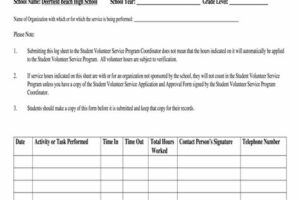Table of Contents
Are you wondering if volunteers need a work permit? Find out the answer to this question and gain clarity on the legal requirements for volunteers in various countries. Explore the regulations and exemptions surrounding work permits for volunteers. Ensure compliance and understand the necessary steps involved in volunteering without a work permit.
Volunteering is a noble act that not only benefits individuals who are in need, but also provides a sense of fulfillment and personal growth. However, when it comes to volunteering in a foreign country, one question that often arises is whether a volunteer needs a work permit. This crucial inquiry is essential for anyone considering volunteering abroad, as it determines the legal requirements and boundaries within which one can contribute their skills and time. To shed light on this matter, it is essential to explore the complexities surrounding the need for a work permit when engaging in volunteer work overseas.
Introduction
Volunteering is a noble act that involves offering your time and skills to help others or support a cause. Many individuals are interested in volunteering abroad or in a different country, but often wonder if they need a work permit to do so. In this article, we will explore whether volunteers require a work permit and the implications surrounding this topic.
Understanding Work Permits
Before delving into whether volunteers need a work permit, it’s important to understand what a work permit entails. A work permit, also known as a work visa or working visa, is an official document that authorizes an individual to work legally in a specific country.
Volunteering as a Tourist
Many countries allow tourists to engage in volunteering activities without requiring a work permit. This exemption is typically granted under the assumption that the volunteer is not receiving any financial compensation for their services and that their primary purpose for being in the country is tourism.
Duration of Volunteering
While volunteering as a tourist may be permissible in certain cases, there are limitations on the duration of such activities. Countries often have specific time restrictions, such as allowing volunteering for a maximum of 90 days within a six-month period. Exceeding these limits may require a work permit or a different type of visa.
Types of Volunteer Work
The type of volunteer work being performed can also impact the necessity of a work permit. Some countries differentiate between unpaid work that directly benefits local communities, such as helping in schools or hospitals, and work that could potentially replace paid positions, such as working for a company or organization.
Legal Implications
Engaging in volunteer work without the appropriate work permit can have legal consequences. If caught, individuals may be subjected to fines, deportation, or even be banned from reentering the country. It is crucial to research and comply with the specific regulations of the country you plan to volunteer in to avoid any legal issues.
Benefits of Obtaining a Work Permit
While it may seem like an extra bureaucratic step, obtaining a work permit as a volunteer has its advantages. Firstly, it ensures that you are abiding by the laws and regulations of the country, giving you peace of mind during your volunteering experience. Additionally, having a work permit may grant you access to certain benefits, such as healthcare or social security, depending on the country.
Application Process
The application process for a work permit varies from country to country. It often involves providing documentation such as proof of identity, purpose of volunteering, and sometimes a letter of recommendation from the organization you will be volunteering with. It’s important to start the application process well in advance of your planned volunteer period, as it can take time to gather all the necessary documents and receive approval.
Considerations for International Volunteers
For individuals planning to volunteer internationally, additional considerations come into play. Each country has its own regulations regarding work permits for volunteers, so it is essential to thoroughly research and understand the requirements of the specific destination. Engaging with local organizations or seeking advice from experienced volunteers can provide valuable insights into navigating the process.
Conclusion
While the need for a work permit as a volunteer depends on various factors such as the nature of the work and the duration of stay, it is crucial to be well-informed and compliant with the regulations of the country you plan to volunteer in. Taking the necessary steps to obtain a work permit not only ensures legal compliance but also allows you to have a more enriching and secure volunteering experience.
Introduction
Volunteering is a fulfilling experience that allows individuals to contribute their skills and time towards a meaningful cause. However, for those who are planning to volunteer abroad or in a country that they are not a citizen of, it is essential to understand the regulations and requirements regarding work permits. In this article, we will explore whether volunteers need a work permit and discuss the implications for both the volunteer and the organization they are working with.
Definition of a work permit
A work permit, also known as a work visa or employment visa, is an official document issued by a government authority that allows individuals to legally work in a specific country. It grants permission to engage in paid employment and outlines the terms and conditions of the work contract.
Differentiating between volunteering and paid work
Volunteering typically involves offering one’s services on a voluntary basis, without receiving any financial compensation. It is important to distinguish between volunteering and paid work, as work permits are usually required for the latter. However, the line between the two can sometimes be blurred, especially when volunteering involves certain benefits, such as accommodation or a stipend.
Volunteer work and work permit requirements
The need for a work permit for volunteers largely depends on the country’s immigration regulations and the nature of the volunteer work. Some countries may have specific visa categories for volunteers, while others may require volunteers to obtain work permits similar to those required for paid employment. It is crucial for volunteers to research and understand the specific requirements of the country they intend to volunteer in.
Exceptions to work permit requirements
In certain cases, volunteers may be exempted from obtaining a work permit due to the nature of their work or the duration of their stay. For example, countries may have specific provisions for short-term volunteer projects or initiatives that do not require a work permit. However, it is important to note that these exemptions vary from country to country, and it is advisable to consult the relevant immigration authorities to ensure compliance.
Implications for the volunteer
Failing to obtain the necessary work permit when required can have serious implications for the volunteer. It may lead to legal complications, deportation, or even a ban from entering the country in the future. Additionally, working without the proper permits can strain relationships between the volunteer and the organization they are working with, potentially damaging the reputation of both parties.
Implications for the organization
Organizations that involve volunteers need to be aware of their responsibilities in ensuring compliance with immigration regulations. If volunteers are found to be working without the necessary permits, the organization may face legal consequences, including fines and reputational damage. It is therefore crucial for organizations to provide guidance and support to volunteers, ensuring they understand the work permit requirements.
Seeking guidance and assistance
Given the complexity and variability of work permit requirements for volunteers, it is advisable for both volunteers and organizations to seek guidance from immigration experts or legal professionals familiar with the specific country’s regulations. This will help ensure that all necessary permits are obtained before the volunteer work begins, mitigating potential legal and administrative issues.
Conclusion
While the need for a work permit may vary depending on the country and the nature of the volunteer work, it is essential for individuals and organizations to understand and comply with the relevant regulations. By obtaining the necessary permits and seeking guidance when needed, volunteers can enjoy a meaningful experience while contributing to their chosen cause, while organizations can protect their reputation and ensure compliance with immigration laws.
Volunteering is a noble act that allows individuals to contribute their time, skills, and efforts towards the betterment of society. However, when it comes to volunteering in a foreign country, the question of whether a volunteer needs a work permit arises. To analyze this situation, let us examine the following points:
- Legal requirements: In most countries, individuals require a work permit to engage in any form of employment, including unpaid volunteer work. This is because work permits serve as a legal document that grants permission to work within a specific country. From a professional standpoint, it is crucial to abide by the laws and regulations of the host country, ensuring compliance with immigration and labor policies.
- Protection for volunteers: Requiring a work permit for volunteers offers a layer of protection for both the volunteers and the host country. By obtaining a work permit, volunteers are covered by insurance and liability policies, ensuring their safety and well-being during their time of service. Additionally, work permits enable the host country to regulate the activities of volunteers, preventing any potential misuse of resources or exploitation of local communities.
- Equal opportunities: Requiring work permits for volunteers ensures that opportunities for local individuals are not compromised. In some cases, individuals may argue that volunteers should be exempt from work permits as they are not receiving financial compensation. However, this perspective neglects the fact that volunteers often possess skills and qualifications that could be fulfilled by local professionals. By obtaining work permits, volunteers can ensure that their presence does not hinder employment prospects for locals, promoting fairness and equal opportunities.
- International cooperation: The requirement of work permits for volunteers also fosters international cooperation and collaboration. It encourages volunteers to engage with local organizations and communities in a structured manner, promoting cultural exchange and understanding. Work permits also serve as a means of tracking and evaluating volunteer activities, enabling host countries to develop better strategies for future volunteer programs.
- Ethical considerations: Lastly, from an ethical standpoint, obtaining a work permit demonstrates respect for the laws and regulations set by the host country. It showcases a commitment to following proper procedures and ensuring that volunteers are integrating into the local community in a responsible manner. By adhering to legal requirements, volunteers uphold the integrity of their work and contribute to the overall positive impact they seek to achieve through their voluntary service.
In conclusion, while it may seem counterintuitive for volunteers to require work permits, there are valid reasons for this requirement. From a professional perspective, obtaining a work permit ensures compliance with legal regulations, protects volunteers, promotes equal opportunities, fosters international cooperation, and upholds ethical standards. By recognizing the importance of work permits for volunteers, we can create a more structured and effective framework for international volunteerism.
Thank you for visiting our blog on the topic of whether volunteers need a work permit. We hope that the information provided has been helpful in clarifying any doubts or concerns you may have had. As a final message, we would like to summarize the key points discussed throughout the article.
Firstly, it is important to understand that the requirement for a work permit depends on various factors, such as the country where you plan to volunteer and the nature of the work you will be doing. While some countries have specific regulations that exempt volunteers from needing a work permit, others may require one for certain types of volunteer activities. Therefore, it is crucial to research and familiarize yourself with the laws and regulations of the country you intend to volunteer in.
Secondly, we emphasized the importance of distinguishing between volunteering and paid work. Generally, volunteers do not receive financial compensation for their services, unlike employees who are hired to perform specific tasks. If you are receiving any form of payment, even if it is just covering your living expenses, it could be considered work rather than volunteering. In such cases, a work permit might be necessary.
Lastly, we highlighted the benefits of obtaining a work permit, even if it is not mandatory. By obtaining the appropriate documentation, you not only ensure compliance with the law but also protect yourself and your rights as a volunteer. Having a valid work permit can provide you with peace of mind and prevent any potential issues that may arise during your volunteering experience.
In conclusion, while the requirement for a work permit varies depending on the country and the type of volunteer work, it is essential to be well-informed and prepared. Conduct thorough research, consult with relevant authorities, and seek legal advice if necessary to ensure a smooth and rewarding volunteering experience. We wish you all the best in your future volunteer endeavors!
.
Here are some common questions people also ask about whether volunteers need a work permit:
Do volunteers need a work permit?
Generally, volunteers do not need a work permit. Volunteering is often considered an unpaid activity where individuals offer their time and skills without receiving monetary compensation.
Are there any exceptions to the work permit requirement for volunteers?
Yes, there may be exceptions depending on the country and the specific circumstances. Some countries have specific visa categories or exemptions for volunteers engaged in certain types of charitable or humanitarian work. It is important to research and understand the regulations of the country you plan to volunteer in.
What if I am volunteering for an organization that provides accommodation or financial support?
In some cases, providing accommodation or financial support to volunteers may affect the requirement for a work permit. It is advisable to consult with the immigration authorities or an experienced immigration lawyer to determine the specific regulations that apply in your situation.
Can volunteering lead to employment opportunities?
While volunteering itself does not typically lead to formal employment opportunities, it can provide valuable experience, networking opportunities, and skill development that may enhance future job prospects. However, if the intention is to seek paid employment, it is essential to obtain the necessary work permits and comply with the immigration requirements of the respective country.
What are the consequences of volunteering without a work permit?
Volunteering without a required work permit can have serious consequences, including legal penalties, deportation, and future immigration complications. It is crucial to abide by the immigration regulations of the country in which you are volunteering to ensure compliance and avoid any adverse consequences.
Remember, the specific requirements for volunteering and work permits may vary depending on the country and individual circumstances. It is always best to consult with the appropriate immigration authorities or seek legal advice to ensure you have accurate and up-to-date information regarding your specific situation.






